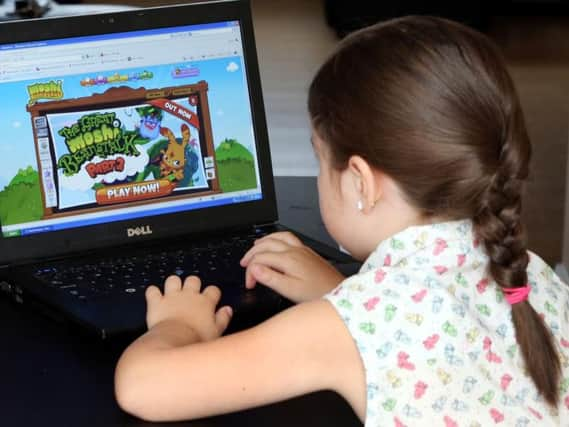Children spending more time online than watching TV for first time


A report published today by Ofcom found that children’s internet use has reached record highs, with youngsters aged five to fifteen spending around 15 hours each week online – overtaking time spent watching a TV set for the first time. The figure has increased their weekly online time by an hour and 18 minutes in the last year.
Youngsters aged three to four are spending eight hours and 18 minutes a week online, up an hour and a half from six hours 48 minutes twelve months ago, while a third of the preschool age group owns their own media device – such as a tablet or games console.
Advertisement
Hide AdAdvertisement
Hide AdThe Children and Parents: Media Use and Attitudes survey found that in contrast, children are spending less time watching a TV set, with their weekly viewing dropping from 14 hours 48 minutes in 2015 to 13 hours 36 minutes in the last year.
However, most families claimed that their child has a good balance between screen time and doing other activities, with reading ranked the third most popular activity with primary school aged children beating newer activities such as watching online video clips, instant messaging and watching music videos. Three quarters of children aged 12 to 15, and parents of children of the same age, believe this balance is about right.
Many families still enjoy a traditional bedtime routine, with one in five children aged six to 11 reading at 7.45pm – the highest peak for reading during the day.
Jane Rumble, Ofcom director of market intelligence said: “Children’s lives are increasingly digital, with tablets and smartphones commanding more attention than ever. Even so, families are finding time for more traditional activities, such as watching TV together or reading a bedtime story.”
Pre-schoolers typically enjoy digital entertainment on a tablet, with more than half using one. As children reach pre-to-early teenage years, they prefer smartphones to tablets – with the proportion of children owning one up from 35 per cent to 41 per cent in the last year. This means one in three eight to 11 year olds, and eight in 10 older children aged 12 to 15 now have their own smartphone.
More than nine in ten children aged 8-15 have had conversations with parents or teachers about being safe online, and would tell someone if they saw something they found worrying or nasty.
Parents of older children are most likely to be having these types of conversations with their children, with 92 per cent of parents of 12 to 15 year olds saying they have spoken to their child about online safety, an increase of six percentage points since 2015.
Nearly all parents of school age children manage their offspring's internet use in some way – through technical tools, talking to or supervising their child, or setting rules about access to the internet and online behaviour. Two in five parents use all four approaches.